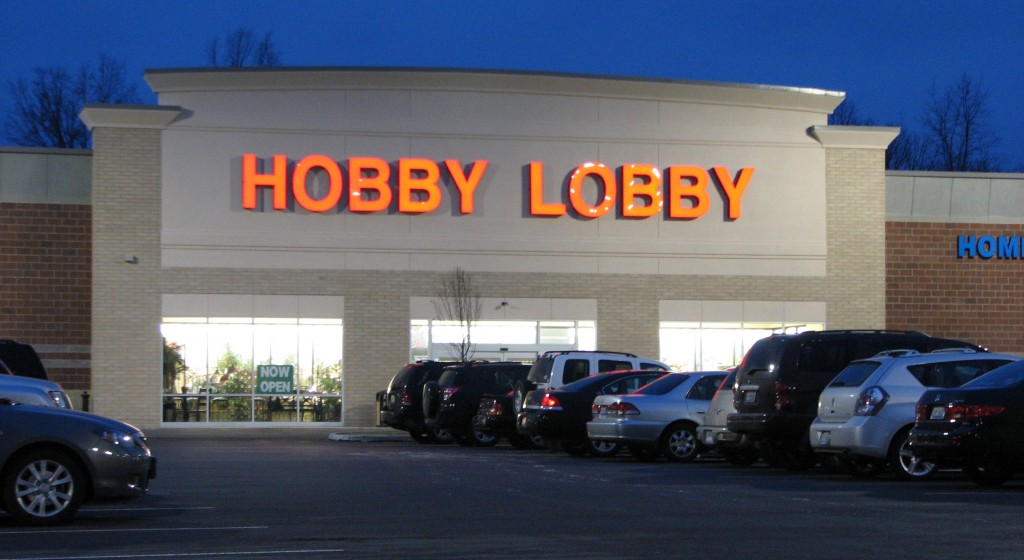
Hobby Lobby’s victory leads to congressional attack on RFRA
On June 30, the US Supreme Court, in a 5-4 decision, ruled in favor of Hobby Lobby and Conestoga Woods, two family-owned companies that had asked, because of their Christian pro-life convictions, not to have to include four contraceptive drugs and devices, which they consider to be abortifacients, in their employee health plans. The contraceptive mandate generally requires health plans to cover “all FDA-approved” contraceptive drugs, devices, and education. The administration wrote into the regulations an exemption for church and church auxiliaries (church-controlled subordinate organizations) and, after great protest, an “accommodation” for religious nonprofit organizations such as colleges and charities (an accommodation rejected as inadequate by many faith-based nonprofits). But for-profit companies, the administration said, have no religious rights, and thus are fully subject to the contraceptives mandate.
The Court majority disagreed. The Religious Freedom Restoration Act (RFRA) is applicable to organizations as well as individuals, to corporations (most nonprofits and churches are “corporations”) as well as other organizations, to for-profit organizations as well as nonprofits. (Similarly, the constitutional guarantee of free speech applies not only to reporters but also to media companies-see, e.g., NY Times v. US, 1971, about publication of the Pentagon Papers.) Justice Alito, in his majority opinion, pointed out: “A corporation is simply a form of organization used by human beings to achieve desired ends.” And so, “protecting the free-exercise rights of corporations like Hobby Lobby . . . protects the religious liberty of the humans who own and control those companies.”
RFRA does not immunize any person or organization from the law, however. The claimed burden on the free exercise of religion has to be substantial even to be weighed against the government’s requirements. And the government’s requirements can still prevail, imposing such a burden, if the government’s interest is “compelling” and it has no way to achieve its aim that will restrict religion less substantially.
In the case of these two closely-held companies, challenging the requirement to include contraceptives the owners are sure act to end nascent life, the Court majority said that the burden was in fact substantial (consider the multi-million dollar fines) and that–assuming that the government’s aim in assuring to women cost-free access to all contraceptives is compelling–the government had not chosen the least restrictive means to ensure that access. A less restrictive means than compelling the owners to include the contraceptives in their plans has been designed by the federal government itself: the accommodation offered to religious nonprofits, whereby the insurance company or the third-party administrator of the insurance is required to pay for the contraceptives an organization excludes from its plan for reasons of conscience.
Thus, according to the Court, Hobby Lobby, Conestoga Woods, and similar companies with a similar objection to the contraceptives mandate win relief. The government must let them exclude some or all contraceptives, if they have a weighty religious objection to them-and devise a different way to ensure access to those contraceptives by these companies’ women employees.
The decision protects the ability of business owners to use ethical (religious, humanitarian, social-justice) values in running their companies-an outcome we should all applaud. It does not permit companies to prevent their employees from accessing legal contraceptives, nor permit companies to make up religious claims so that they can save money at the expense of their employees, or arbitrarily deny employee rights. It does not authorize companies to fire gay employees and did not determine whether big companies traded on the stock exchanges do or do not have the same religious rights as Hobby Lobby.
The decision does instruct the government to devise a religiously less-restrictive means of ensuring access to cost-free contraceptives to women employed by companies like Hobby Lobby and Conestoga Woods.
Effort to Limit RFRA. Rather than devise such a means, an effort is underway in Congress simply to strip RFRA protection from Hobby Lobby and similar companies. The Senate bill , initiated by Senator Patty Murray (D-WA), and a companion House bill championed by Rep. Louise Slaughter (D-N.Y.) and others, would prevent companies from having recourse to RFRA if they have religious objections to the contraceptives mandate. Depending on how the wording is interpreted, it may strip RFRA protections from companies with respect to other federal requirements.
In any case, adoption of the bill, which seems very unlikely, would establish a very negative precedent as the first successful effort to exclude some acts of religious exercise from the protection of RFRA, which was adopted to great acclaim in 1993 exactly to provide strong protections for such exercise. Earlier congressional efforts to carve away RFRA protections have failed; over the past few years Republicans as well as Democrats have proposed restrictions on RFRA (e.g., to make it easier for the Pentagon to enforce its dress code, to ease the border-patrol duties of the Department of Homeland Security, to make it easier to curtail deceptive advertising about funerals and burials, and to undermine religious hiring by religious organizations taking part in some federal drug-treatment programs). All of these efforts have been withdrawn or have died for lack of action. Congress should quickly turn down this latest attempt to undermine the Religious Freedom Restoration Act-and devise a different means to achieve its aim.
